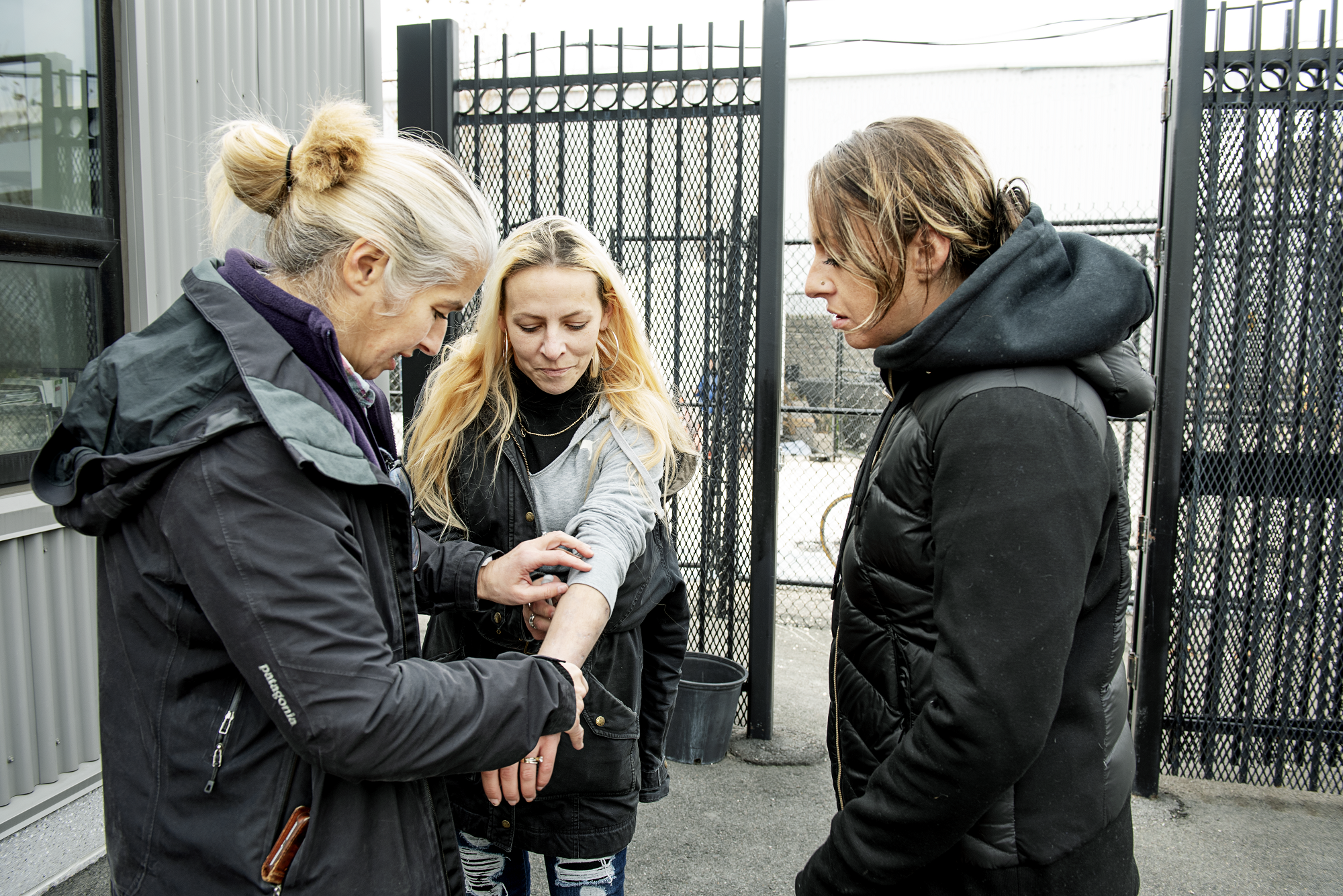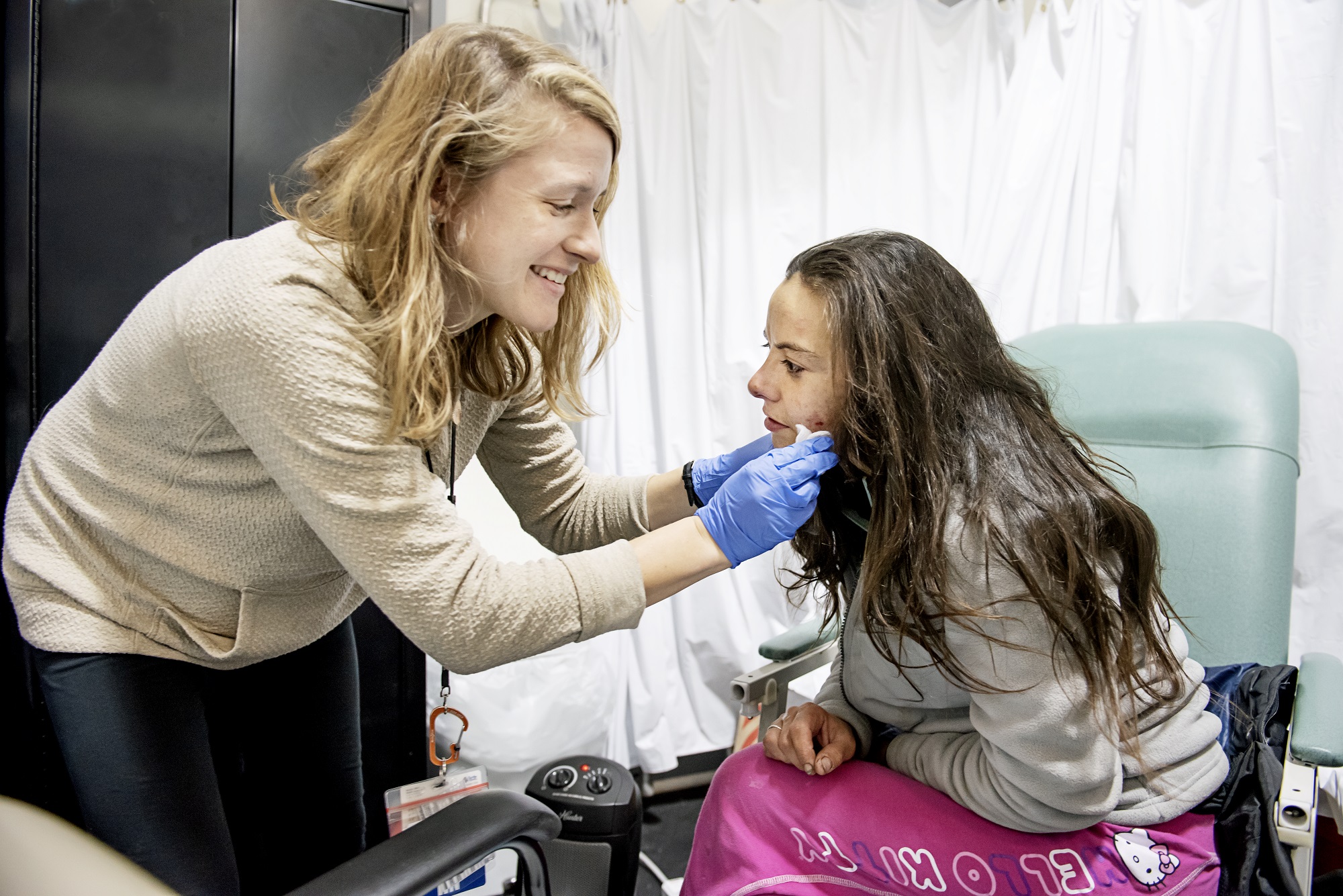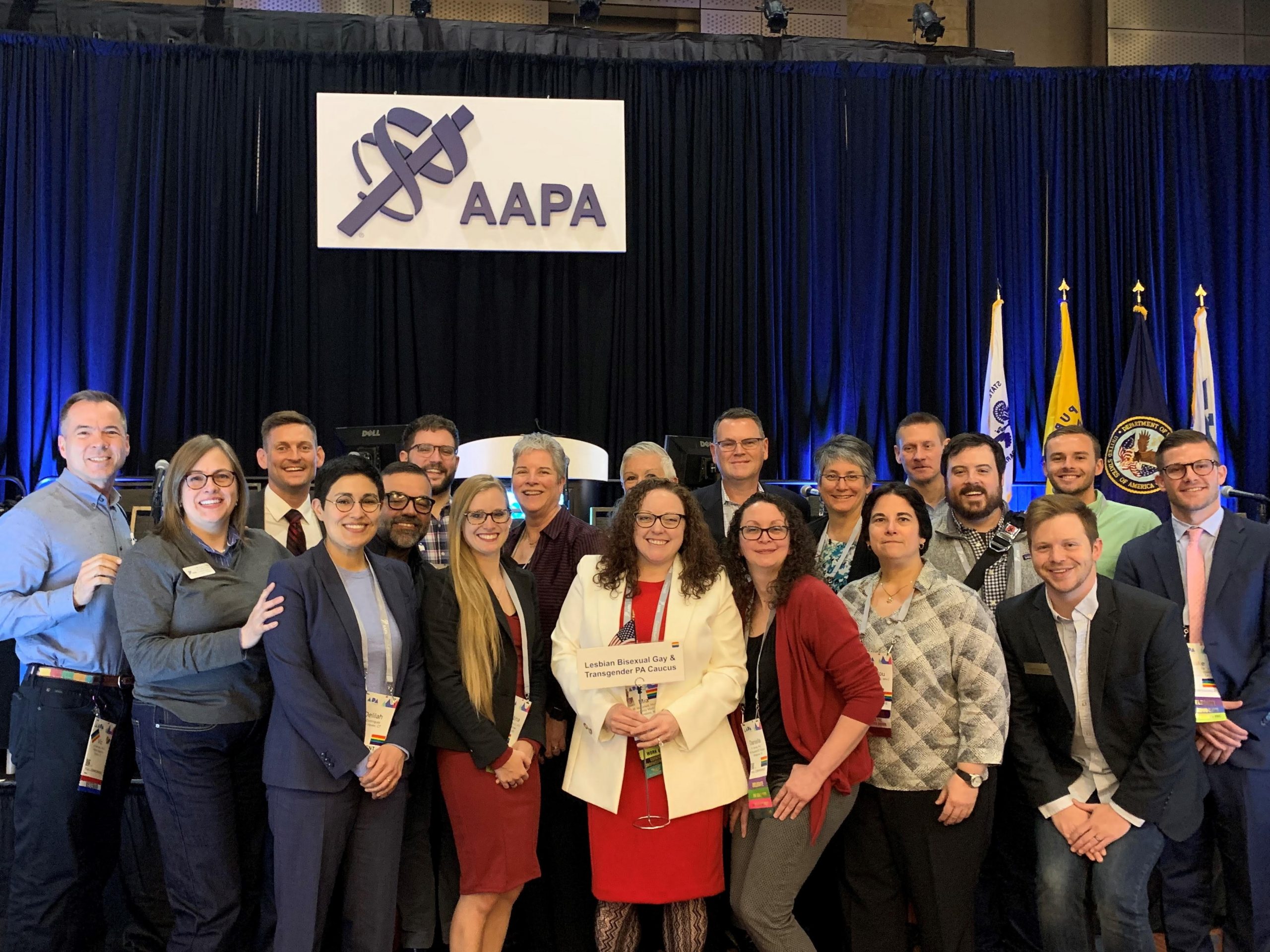Boston PA Helps Safeguard the Homeless Through the Pandemic
Providing Patients with a Safe and Comfortable Medical Home
September 24, 2021
By Dave Andrews

Some people may simply associate the COVID-19 pandemic with more time spent working, studying, and playing at home. But for those who are without a home, the pandemic has been vastly different.
The congregate lifestyles typical of those experiencing homelessness enables the virus to spread more quickly and easily than within more isolated populations. So, at the onset of the pandemic, the Boston Health Care for the Homeless Program (BHCHP) immediately had to make significant changes in its outreach efforts.
Prior to the pandemic, Harrison Keyes, PA-C, devoted most of his time to two of BHCHP’s outpatient clinics and its 24/7 medical respite program. As the number of coronavirus cases rose—particularly among the homeless population—Keyes was asked to shift gears and oversee BHCHP’s COVID-19 testing program.
Keyes says the infection rates early on within many of the shelters were especially high, often times in the 30 to 40% range. He soon implemented a comprehensive testing and surveillance program that encompassed the area’s largest shelters.
“We’d go to each shelter every two weeks and tried to get as many tests done as possible to get a sense of where things stood,” Keyes said. “For those who tested positive, we’d rapidly decant them to one of our alternative facilities for monitoring and care.”
The program’s consistent testing and isolation protocols—in collaboration with other healthcare officials and organizations that set up additional sites to relieve shelter congestion—quickly produced positive results. Keyes says that well before vaccinations even became available, he saw drastic reductions in the number of COVID-19 cases reported in the shelters from week to week.

Testing Fatigue
Despite its success in helping to suppress the spread of coronavirus, the testing program has gradually taken a toll on the psyche of many shelter residents. The bi-weekly tests often compound an already frustrating situation for those experiencing homelessness.
“Our patients live in such an unsafe and tumultuous world, even aside from the pandemic. [COVID-19] just adds another level of stress to their lives,” said Melinda Thomas, PA-C, associate medical director at BHCHP. “So while they’re fatigued about testing, many are also dealing with substance use, an uptick in HIV, and myriad other physical and financial challenges.”
Members of Keyes’ testing team are increasingly experiencing pushback from weary patients, some of whom refuse to be tested. Keyes says that in certain cases, when a shelter requires residents to be tested, some patients would rather risk losing a place to sleep that night than take yet another test.
However, as more vaccinations are administered and cases continue to drop, Keyes and the other providers more often try to highlight that there is light at the end of the tunnel.
“[Focusing on the positive] won’t work all the time, but it’s helpful for some patients,” Keyes said. “On the other hand, there are those who are very enthusiastic about getting tested. A lot of them have seen friends and loved ones struggle with or die from COVID. So, they’re usually glad to see us, to feel comforted in knowing their status.”
Unique Patient Needs
Addressing unique patient needs is what initially drew Keyes to the healthcare field. After his undergrad at University of Vermont, he worked as a medical assistant in a primary care outpatient clinic. That experience working with and observing the PAs helped him realize becoming a PA was the best fit for him.
While in PA school at MGH Institute of Health Professions in Boston, Keyes volunteered with a student-led clinic providing care in various community centers and hospital settings. He also decided to join the LBGT PA Caucus to engage with others throughout AAPA and learn more about sexual and gender minority health.
[Stay connected to your PA community – join or renew your membership today.]
Keyes says his continued participation has made a noticeable impact on his day-to-day work. He notes that sexual and gender minority youth experience particularly high rates of homelessness. Through discussions with many of his fellow caucus members, he feels increasingly adept in caring for a diverse patient population.

“The unique concerns and challenges of the LGBTQ population aren’t typically covered that well in medical education,” Keyes said. “So, it’s really been a valuable experience for me with the LBGT PA Caucus, learning about the latest best practices and techniques to provide the highest quality of care to all of our patients, regardless of gender or sexual preferences.”
The immediate-past president of the caucus, Mia McDonald, PA-C, says she met Keyes while they were both student delegates, and the two have remained active in the caucus ever since. McDonald knows from personal experience that LGBTQ individuals can often feel like they are alone. She quickly learned that engaging with groups of fellow students and practicing PAs who are focused on similar issues can have a positive impact.
“Being a member of a caucus is a fantastic way to really connect with people, both personally and professionally, from all over the country,” said McDonald, an emergency medicine PA. “In addition to the educational benefits, most members really value that community aspect—connecting with other PAs out there who are deeply interested in healthcare equity.”
The individuals Keyes serves lead lives filled with uncertainty, not just about their housing situation, but also about their employment outlook, family relations, and personal health. He says the work is definitely challenging, but at the same time, very rewarding.
“We’re able to give them resources and provide them with a safe and comfortable medical home to help them get back on their feet,” Keyes said. “I feel extremely fortunate to have that level of patient engagement each and every day.”
Dave Andrews is a freelance writer based in Northern Virginia. Contact him at [email protected].
Editor’s note: This article originally appeared in April 2021.
You May Also Like
Expert Advice on Providing Trans-Affirming Healthcare
PA’s Immigrant Parents Inspire His Career in Critical Care
PA Caregivers Face Additional Anxiety, Stress During Pandemic
Thank you for reading AAPA’s News Central
You have 2 articles left this month. Create a free account to read more stories, or become a member for more access to exclusive benefits! Already have an account? Log in.



